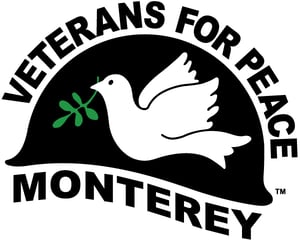
From Hiroshima to Gaza: A Survivor's Warning
Last weekend at our national convention, I met Leon Cloder, a Japanese peace activist who, at just six years old, survived the bombing of Hiroshima. I want to share his story with you — in his own words — as he told it to me.
Leon was born in Kanagawa Prefecture in 1939. In the summer of 1945, his family was living in Tokyo when leaflets began falling from the sky, warning of possible air raids. His father, a science professor, decided they would return to Hiroshima to gather their belongings so they could leave the city. That decision placed them in Hiroshima on the morning of August 6th.
It was a bright, cloudless morning. Leon sat at the dining table with his sister and older brother while his father worked outside trimming trees. At exactly 8:15, his mother cried out, “Atsui!”, “Hot!” The sky glowed as if there were many suns.
Then — a blinding flash. A deafening blast. A rush of fire and wind tore through the house. His father shouted, “Is everyone okay?” Leon called back, “I’m okay!” The house was in chaos — furniture overturned, glass shattered.
His father came in bleeding from the head. Outside, most buildings were destroyed. He decided to turn their home into a first aid station.
The injured began arriving, burned, bleeding, barely able to walk. The asphalt was so hot, softened by the bomb’s flash and the fires that followed, that it could burn bare feet. Leon’s father told him to gather all the shoes and sandals in the house and bring them to the bridge where survivors were gathering. Leon made that trip many times.
On the bridge, he saw people with skin burned and peeling, faces blank, injuries beyond imagination.
Through it all, his father kept a peaceful heart. In the days that followed, their home remained a place of cooperation and calm — even in the shadow of the bomb.
Leon’s story isn’t just about the past. In 1945, Hiroshima civilians at least received a leaflet warning and a way to safety, but in Gaza today, more than two million people are trapped in a sealed-off territory, told to evacuate when there is nowhere safe to go. Even so-called safe zones are under fire.
Like Hiroshima, most of those killed are civilians, including a devastating number of children. In Hiroshima, tens of thousands of children died in a single morning. In Gaza today, children make up nearly half the population, and they are dying at a rate of more than one per hour.
And just like Hiroshima, the suffering will not end when the bombing stops. Survivors in both places face lifelong trauma, destroyed homes, and generations marked by grief.
Today, on the anniversary of the atomic bombings, nuclear weapons are once again being moved as part of a dangerous show of force between powerful nations. The risk of nuclear war is real again. What happened in Hiroshima was a human choice — and those same kinds of choices are being made today.
As we remember Hiroshima, we cannot ignore Gaza, where civilians are again caught in mass destruction and loss. The lesson is the same: when leaders choose war, it is ordinary people who pay the price.
To my fellow veterans, we have a powerful voice, born from our service and experience. We must use it to speak out for peace and for the elimination of nuclear weapons. If we do, we honor not only Leon’s story, but every life lost in Hiroshima, Nagasaki, Gaza, and in every place where war has taken what can never be replaced.

.jpg?width=4032&height=3024&name=Image%20(11).jpg)
